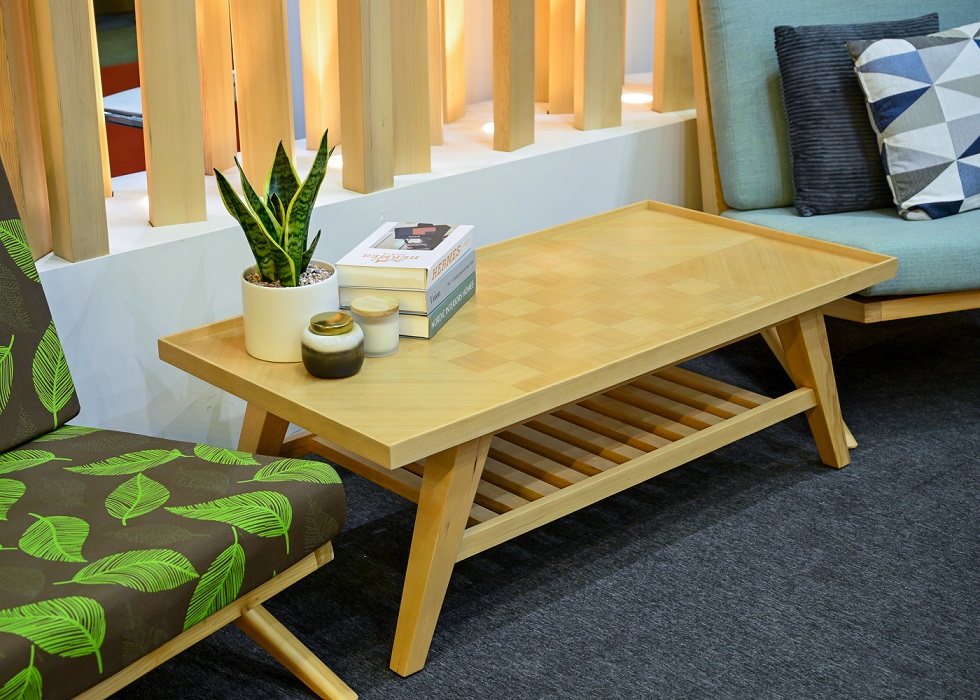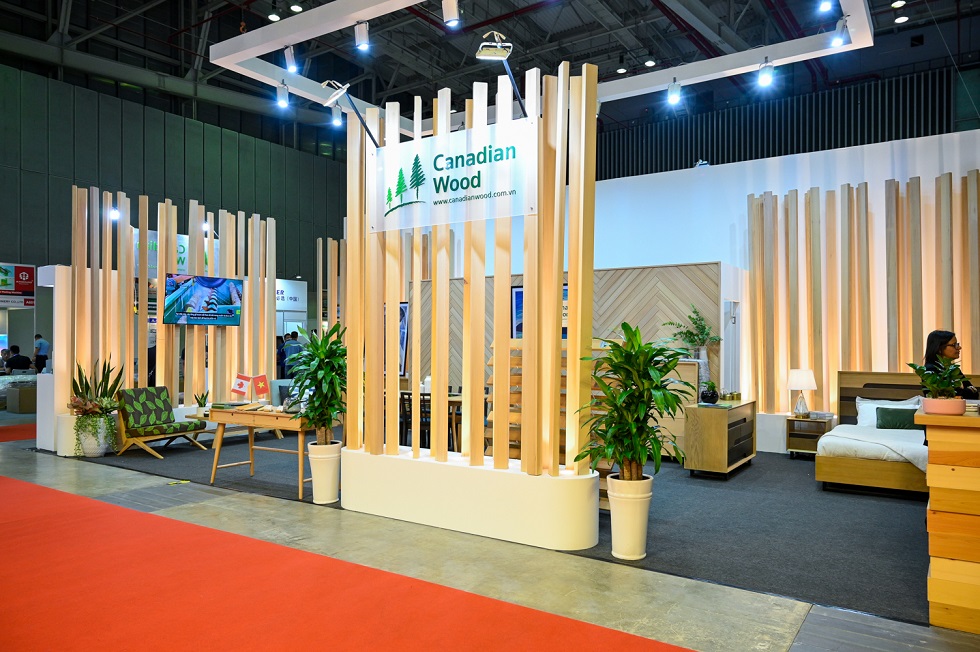Vietnam’s fast-growing wood import market is continuing its shift towards environmentally friendly products. Buyers are increasingly favouring products manufactured using legal, traceable source materials. This shift presents opportunities for wood suppliers that can ensure sustainability and legality, including softwood suppliers from Canada.
Meeting legality and sustainability
Mr. Do Xuan Lap, Chairman of the Vietnam Timber and Forest Product Association (Viforest), said Vietnam’s wood processing industry for export has attained two-digit growth over the past few years thanks to the expansion of the global market and increases in production capacity, particularly in products requiring high skills.
Over the past year, despite stagnant demand due to high inflation caused by geopolitical and global economic events, the tendency to shift wood product orders from China and other countries to Vietnam continues to be a cause of optimism for Vietnam’s wood production and export industry.
However, there are challenges facing the industry with stricter requirements from importers worldwide demanding “green” products made from legal, traceable wood sources. This has forced Vietnamese wood producers to seek higher quality and more sustainable wood suppliers.
As a result of these pressures, Vietnam’s wood producers are increasingly opting for Canadian softwood products. At the VietnamWood Expo in HCMC in late September, the Canadian Wood stall in the Saigon Exhibition and Convention Center (SECC) attracted the attention of quite a few visitors and wood producers.

Canadian Wood Vietnam is a part of Forestry Innovation Investment (FII), a British Columbia (B.C.) Government Crown agency headquartered in B.C., Canada. The agency does not participate directly in wood trading but acts as a bridge linking interested customers with wood producers in B.C.
One of Canadian Wood’s goals is to educate the market about softwood species from B.C. Their technical experts host seminars, provide support to manufacturers trialing wood and have educational brochures with details on each species.
“After a great deal of effort and direction from the organisation, the number of connections we have seen form over the past few years reflects the increasing popularity of Canadian wood sources among producers in Vietnam,” said Mr. Peter Bradfield, Senior Technical Advisor of Canadian Wood at the VietnamWood Expo 2023.
Explaining its popularity, Mr. Bradfield said B.C.’s sustainable forest management is known worldwide. Forests in B.C. receive sustainable management certificates from independent third parties, assuring buyers that the wood they use is sourced legally and responsibly. It is now a must in wood production in Vietnam and globally.
Vietnam’s furniture producers take advantage of “Try Canadian Wood” initiative
Given the decreased global demand for wood products due to economic hardships and high inflation, businesses need to use creativity and innovation in their products and materials to remain competitive. Providing an alternative to hardwood that Vietnamese enterprises have traditionally used, Canadian softwood offers greater sustainability and savings in production costs.

In Vietnam, Canadian Wood focuses on five main wood species: Western Hemlock, Douglas-fir, Western Red Cedar, SPF (Spruce-Pine-Fir), and Yellow Cedar. According to Canadian Wood’s research, these five wood species are the most suitable for production in Vietnam. Since approaching the wood industry in Vietnam, Canadian Wood has provided experts ready to offer guidance, consultation and training for local producers regarding B.C. wood products.
Canadian Wood has encouraged those interested in using B.C. wood to participate in the “Try Canadian Wood” program. This initiative is designed to help enterprises in Vietnam find high-quality wood sources in Canada. Canadian Wood Vietnam’s technicians are working with producers, traders and importers to find which wood species are most suitable for indoor and outdoor furniture.
“As part of the ‘Try Canadian Wood’ initiative, we cooperate with furniture manufacturers in Vietnam to better understand the designs, colours and structures they are trying to produce. After that, we offer consultation in terms of techniques, helping them consider Canadian wood as a viable substitute for the more expensive wood they are using. The program helps manufacturers make real samples, enabling them to compare how these new wood species compare with their existing ones,” said Mr. Vince Tran, Country Director of Canadian Wood Vietnam. “Canadian softwood is solid, durable and easier to process than traditional hardwood.”

Vietnam is now the fifth largest wood and wood product exporter in the world and is forecast to rise even higher in the future thanks to a shift in orders from other countries. By signing several free trade agreements (FTAs), it now has great export opportunities thanks to the preferential tariffs put in place. However, the regulations on sustainability and legality from import markets such as the United States, the European Union and Japan are becoming more and more stringent. According to experts, the demand for legal, sustainable wood sources like that of Canada is a necessary response from Vietnamese businesses wishing to be competitive in international export markets.









